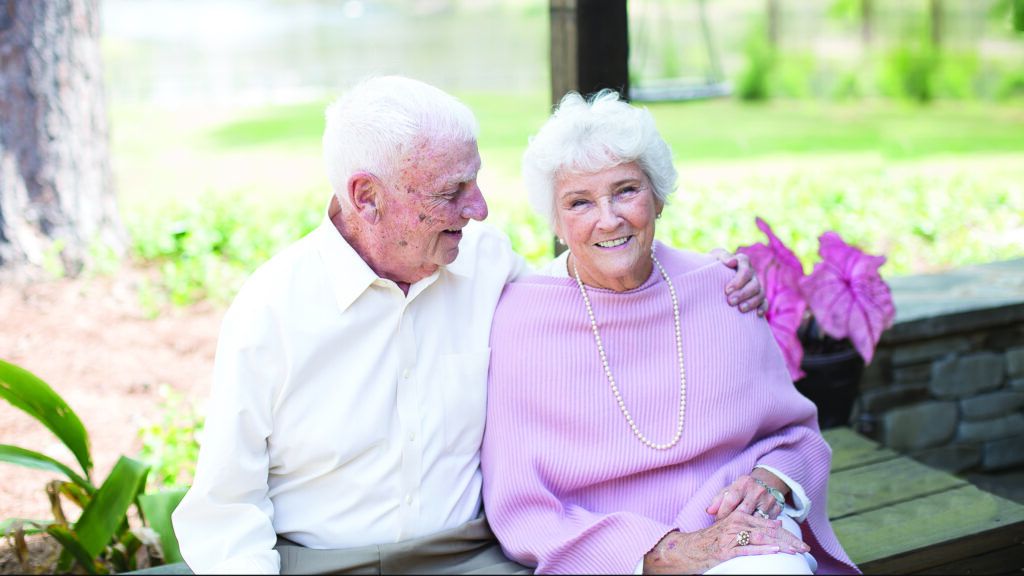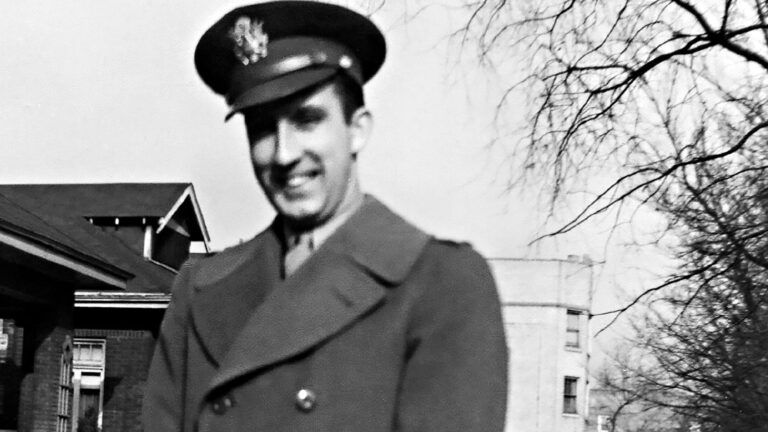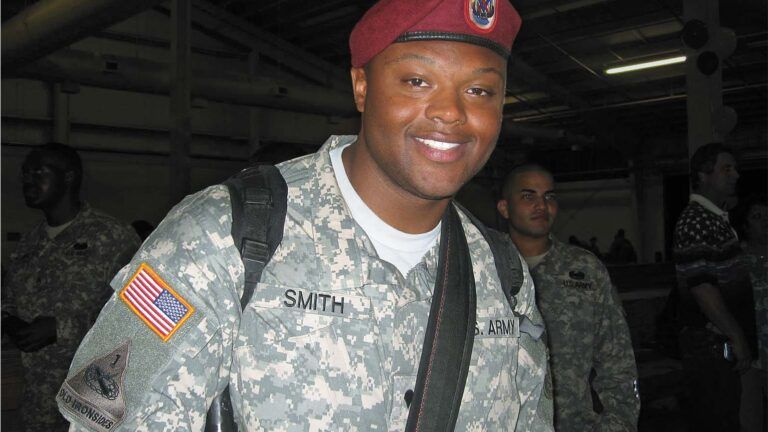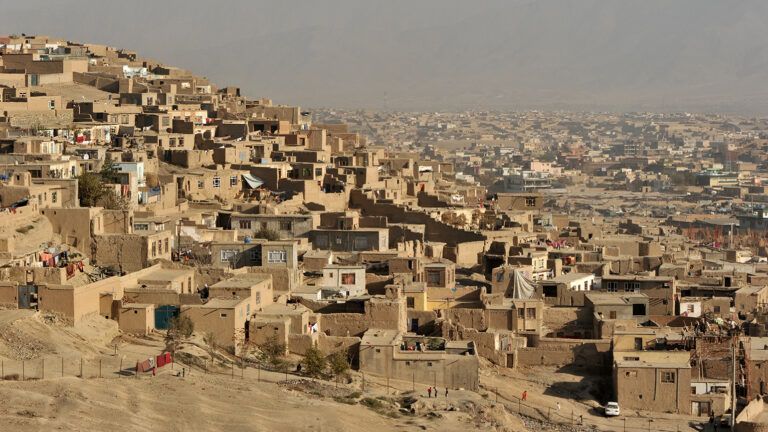The new book Tap Code: The Epic Survival Tale of a Vietnam POW and the Secret Code That Changed Everything, chronicles Carlyle “Smitty” Harris’ seven years as a POW and the faith that prevented his wife, Louise, from giving up hope of his survival. In this excerpt, Louise shares how a meeting with a politician and other wives of POWs, along with a strong prayer routine, kept that faith alive.
It was September 1972 in Tupelo, Mississippi. My children were busy with their school activities, Scout meetings—of which I was the leader—church activities, piano lessons, and sports practices. I was busy trying to keep up with them, as well as to keep all things in order. Most days went smoothly. Most days we were joyful. Some days we were not.
Some days the reality of our situation—that my husband, Smitty, their father, had been a prisoner of war in Vietnam for over seven years—hit me like a blast of cold air, taking my breath away. During the daytime, I did not have time to think about our situation. I did think about Smitty, however.
I watched our son, Lyle, then seven years old, develop friendships with the neighborhood boys, learn to ride a bike, and diligently fold a piece of paper backward and forward until a replica of an airplane came forth. I would smile wistfully at him, happy in the knowledge that he was a contented little boy, and at the same time sad that Smitty was missing all of the ordinary moments that make up a lovely life. And sad that Lyle and my precious girls were missing the great influence that their father would have had on their lives simply by his presence.
I missed his wisdom, and I missed his wit. No one could make me laugh the way Smitty could.
At night, the wistful feeling turned to an acute, aching loneliness. But even as I allowed myself to feel it, I would not embrace it. I could not. I had too many responsibilities; too many little lives were counting on me. Once again, I reminded myself that if Smitty could do what he was doing, I could do what I must do.
Over the years, I had felt a strong responsibility and desire to keep Smitty’s presence alive in our children’s lives. By now, they did not know him at all. Yes, Robin may have had a few flashes of memory of her father, but Carolyn did not, and of course Lyle had never even met him, as I had been pregnant with him when Smitty was taken prisoner.
Yet each night we all knelt by the bed—me and my three little ones lined up side by side as good soldiers in a spiritual war. We were doing our part to defend Smitty and all the POWs. Our warfare was not carnal, but mighty for the pulling down of strongholds—as the Scriptures say. So each night, in prayer, we pulled down the strongholds of despair and destruction, and we prayed our Smitty home.
To the children, I talked as if Smitty were away on a long assignment. He had a very important job, and our nation was counting on him to do it. Since this was all they had ever really known, the children took this in stride and did their part by praying each night for their father.
One day, I received a phone call from my casualty officer in Washington. He invited me to travel to Washington with several other POW wives to participate in talks concerning a plan they had dubbed Operation Egress Recap. We called it Operation Homecoming.
By now, the reports of the war seemed to positively indicate that the POWs might be released in the coming months. How we each longed for that day. But having an inkling of what our men had endured meant that we must prepare carefully to ensure the healthiest and smoothest transition as they were filtered back into a society to which they were no longer accustomed.
The U.S. military leaders wanted our input for this Operation Egress Recap, and we were very glad to give it. Eight wives flew to Washington to participate in three days of meetings with various leaders of the military. As we walked down the Washington Mall, I was gripped once again with a patriotic force rising in my heart and mind.
On the last day of our time in Washington, our group was told that Admiral John McCain Jr. wanted to meet with us. We were overwhelmed. John Sidney “Jack” McCain Jr. was a very busy man. A second-generation admiral, he and his father, John McCain Sr., were the first father–son duo to achieve four-star rank. He had been stationed in Hawaii in the highest position of CINCPAC, Commander in Chief, Pacific Command, and was now back in Washington, working alongside Admiral Elmo R. Zumwalt Jr., who was Chief of Naval Operations.
We were invited to meet in an office in the Pentagon. As he entered the room, we were struck silent, knowing his position of authority. He was obviously very busy, highly focused, and full of energy, but for that hour, he focused totally on the eight wives sitting in that room. He was very interested in how we were faring, his sincere concern highlighting his eyes as he listened to each story. He knew our names and the names of our husbands. He wasn’t there to impress or to accomplish a publicity goal—in fact, no news outlet ever knew about this private meeting. He just wanted us to know that he cared and that he understood.
We all knew that he also grieved the situation in a personal way, as his own son, John McCain, was a POW with our husbands. He expressed concern for us in a way that only one who knew firsthand the emotions of this experience could do. And he humbly allowed us to express concern for him as well—concern not just for an admiral but for a father who longed for his son to come home.
“I want you to know that I fully believe our men will come out. I believe they will come out well and strong, and we will do anything to get them out,” he told us.
The experience was somber and serious, yet it was filled with hope and encouragement. His final words to us meant the most: “I pray for John and all the other POWs every day. And I pray for all of you—the families who are doing their part back home.”
Those words and those prayers were a great balm to each of us. We left this meeting feeling encouraged.
As I flew back to Tupelo and to my children, I carried a small souvenir for each of them. And for myself, I brought back renewed hope.
Excerpted from Tap Code: The Epic Survival Tale of a Vietnam POW and the Secret Code That Changed Everything by Col. Carlyle “Smitty” Harris (ret.) and Sara W. Berry. Copyright © 2019 by Col. Carlyle “Smitty” Harris (ret.) and Sara W. Berry. Used by permission of Zondervan.





